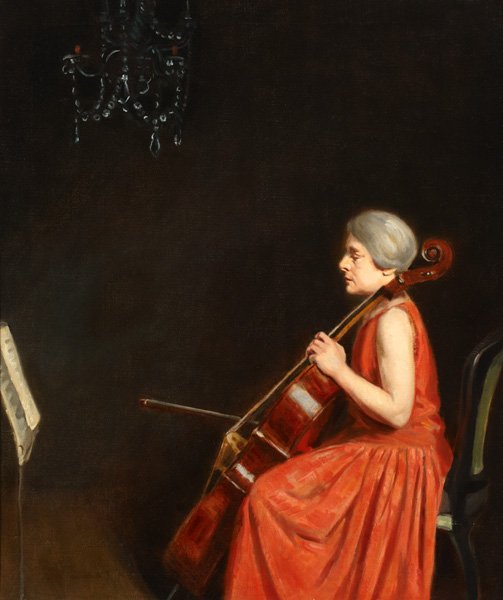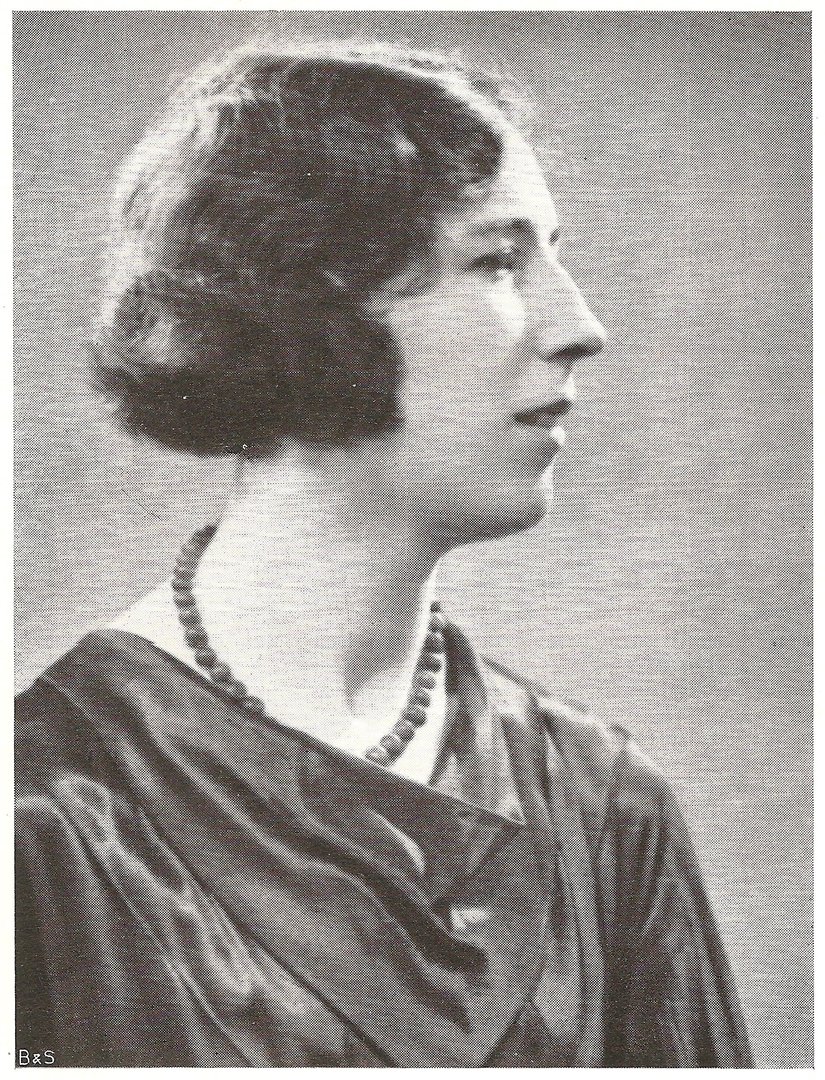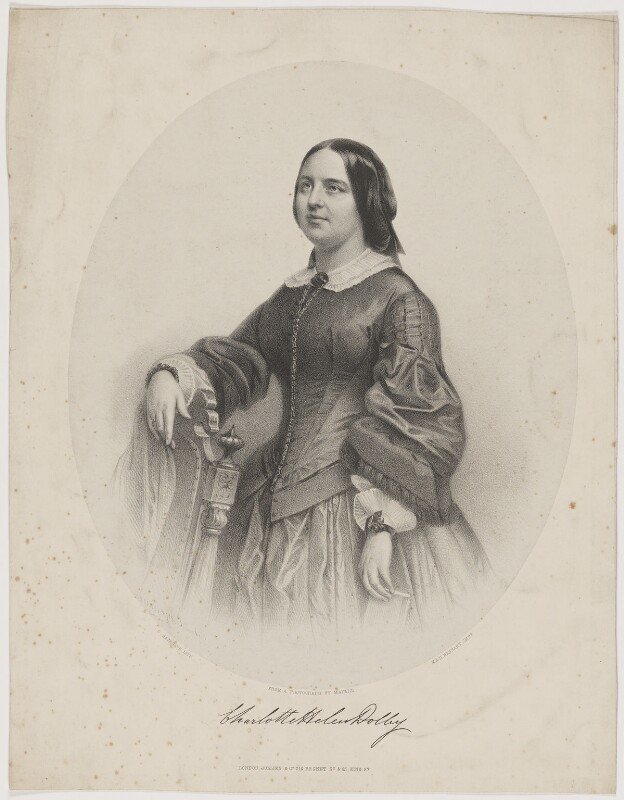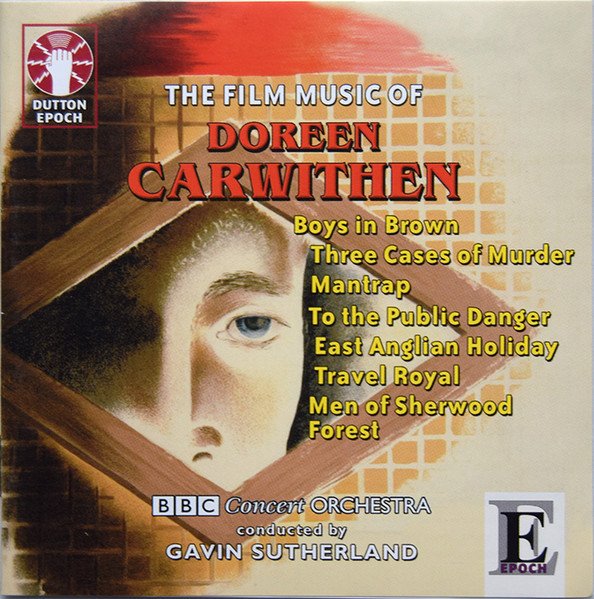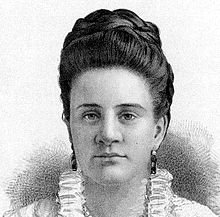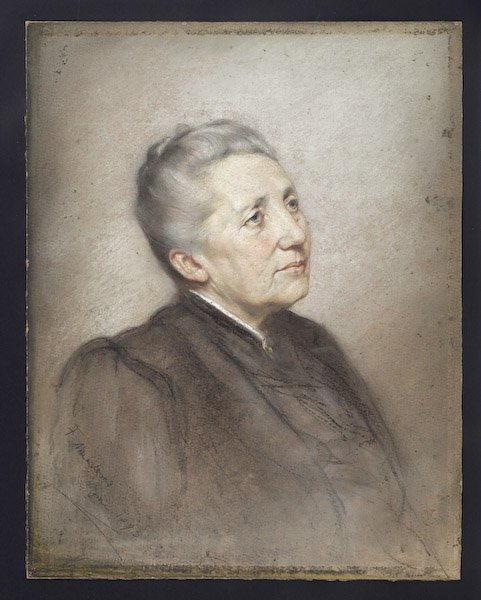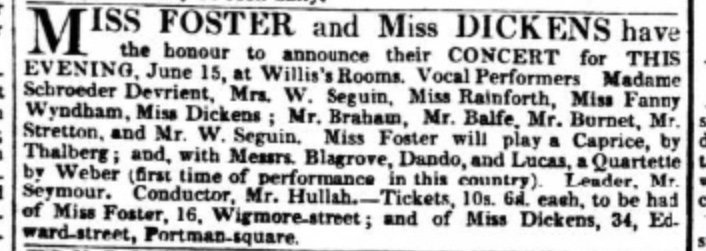A Song of Christmas: Katharine Tynan
“THE Christmas moon shines clear and right;
There were poor travellers such a night
Had neither fire nor candle-light.
One plucked them stars out of the sky
To show the road to travel by;
So that the Ass go warily.
She had all Heaven safe in her hold,
Hidden within her mantle’s fold—
All Heaven, and It was one hour old.
Her hair under, over Him spread
His spun-gold coverlet and His bed,
Twined with His little golden head.
She sang and rocked Him to-and-fro
Such songs as little babies know,
With Lullaby Sweet, and Lullalo.
He had no need of moons and suns,
Nor the gold-crested bird-legions,
Singing their lauds and orisons.
The Christmas moon shows a cold beam;
He hath His Mother, she hath Him:
Together they sleep, together dream.”
Christmas Eve in France: Jessie Redmon Fauset
“OH little Christ, why do you sigh
As you look down to-night
On breathless France, on bleeding France,
And all her dreadful plight?
What bows your childish head so low?
What turns your cheek so white?
Oh little Christ, why do you moan,
What is it that you see
In mourning France, in martyred France,
And her great agony?
Does she recall your own dark day,
Your own Gethsemane?
Oh little Christ, why do you weep,
Why flow your tears so sore
For pleading France, for praying France,
A suppliant at God’s door?
’God sweetened not my cup,’ you say,
’Shall He for France do more?’
Oh little Christ, what can this mean,
Why must this horror be
For fainting France, for faithful France,
And her sweet chivalry?
’I bled to free all men,’ you say
’France bleeds to keep men free.’”
The Eve of Mary: Nora Hopper Chesson
“SING out, and with rejoicing bring
Shepherds and neatherds to their King—
Their King who lies in stable stall,
With straw for all his plenishing;
Who in His hands most weak and small
Doth hold the earth and heavens all;
Sing loud, the Eve of Mary!
Bring in the soft ewes and their rams,
And bring the little crying lambs;
The stable’s wide enough for all.
Bring hither all the bleating dams,
And bid them crouch around the stall,
And watch the wonders that befall
Earth, on the Eve of Mary.
This mother-maid with drooping head
Hath but a straw-heap to her bed,
Yet, did she list, would angels come
And make a palace of her shed,
With myrrh and music bring Him home,
’Mid these glad months the one month dumb—
Here, on the Eve of Mary.
But rather would she lie below
Thatched roof, and hear the north wind blow,
And pattering footsteps of the rain.
Ay, rather would she pay her throe
And take her joy; to quit all pain
His lips are on her breast again—
Sing low, the Eve of Mary!
Sing low, indeed; and softly bleat,
Yon lambing ewes, about her feet,
Lest ye should wake the Child from sleep.
No other hour so still and sweet
Shall fall for Mary’s heart to keep
Until her death-hour on her creep—
Sing soft, the Eve of Mary!
”
Tryste Noël: Louise Imogen Guiney
“The Ox he openeth wide the Doore,
And from the Snowe he calls her inne,
And he hath seen her Smile therefor,
Our Ladye without Sinne.
Now soone from Sleep
A Starre shall leap,
And soone arrive both King and Hinde:
Amen, Amen:
But O, the Place co’d I but finde!
The Ox hath hushed his voyce and bent
Trewe eyes of Pitty ore the Mow,
And on his lovelie Neck, forspent,
The Blessed layes her Browe.
Around her feet
Full Warme and Sweete
His bowerie Breath doth meeklie dwell:
Amen, Amen:
But sore am I with Vaine Travel!
The Ox is host in Judah stall
And Host of more than onelie one,
For close she gathereth withal
Our Lorde her littel Sonne.
Glad Hinde and King
Their Gyfte may bring,
But wo’d to-night my Teares were there,
Amen, Amen:
Between her Bosom and His hayre!”
Prayer for a New Mother: Dorothy Parker
“The things she knew, let her forget again-
The voices in the sky, the fear, the cold,
The gaping shepherds, and the queer old men
Piling their clumsy gifts of foreign gold.
Let her have laughter with her little one;
Teach her the endless, tuneless songs to sing,
Grant her her right to whisper to her son
The foolish names one dare not call a king.
Keep from her dreams the rumble of a crowd,
The smell of rough-cut wood, the trail of red,
The thick and chilly whiteness of the shroud
That wraps the strange new body of the dead.
Ah, let her go, kind Lord, where mothers go
And boast his pretty words and ways, and plan
The proud and happy years that they shall know
Together, when her son is grown a man.”
Three Songs of Shattering: Edna St Vincent Millay
“I
The first rose on my rose-tree
Budded, bloomed, and shattered,
During sad days when to me
Nothing mattered.
Grief of grief has drained me clean;
Still it seems a pity
No one saw,—it must have been
Very pretty.
II
Let the little birds sing;
Let the little lambs play;
Spring is here; and so ’tis spring;—
But not in the old way!
I recall a place
Where a plum-tree grew;
There you lifted up your face,
And blossoms covered you.
If the little birds sing,
And the little lambs play,
Spring is here; and so ’tis spring—
But not in the old way!
III
All the dog-wood blossoms are underneath the tree!
Ere spring was going—ah! spring is gone!
And there comes no summer to the like of you and me,—
Blossom time is early, but no fruit sets on.
All the dog-wood blossoms are underneath the tree,
Browned at the edges, turned in a day;
And I would with all my heart they trimmed a mound for m”
The Holy Night: Elizabeth Barrett Browning
“We sate among the stalls at Bethlehem;
The dumb kine from their fodder turning them,
Softened their horn’d faces,
To almost human gazes
Toward the newly Born:
The simple shepherds from the star-lit brooks
Brought visionary looks,
As yet in their astonished hearing rung
The strange sweet angel-tongue:
The magi of the East, in sandals worn,
Knelt reverent, sweeping round,
With long pale beards, their gifts upon the ground,
The incense, myrrh, and gold
These baby hands were impotent to hold:
So let all earthlies and celestials wait
Upon thy royal state.
Sleep, sleep, my kingly One!”
To Mrs K____, On Her Sending Me an English Christmas Plum-Cake at Paris: Helen Maria Williams
“What crowding thoughts around me wake,
What marvels in a Christmas-cake!
Ah say, what strange enchantment dwells
Enclosed within its odorous cells?
Is there no small magician bound
Encrusted in its snowy round?
For magic surely lurks in this,
A cake that tells of vanished bliss;
A cake that conjures up to view
The early scenes, when life was new;
When memory knew no sorrows past,
And hope believed in joys that last! —
Mysterious cake, whose folds contain
Life’s calendar of bliss and pain;
That speaks of friends for ever fled,
And wakes the tears I love to shed.
Oft shall I breathe her cherished name
From whose fair hand the offering came:
For she recalls the artless smile
Of nymphs that deck my native isle;
Of beauty that we love to trace,
Allied with tender, modest grace;
Of those who, while abroad they roam,
Retain each charm that gladdens home,
And whose dear friendships can impart
A Christmas banquet for the heart!”
Christmas Carol: Sara Teasdale
“The kings they came from out the south,
All dressed in ermine fine;
They bore Him gold and chrysoprase,
And gifts of precious wine.
The shepherds came from out the north,
Their coats were brown and old;
They brought Him little new-born lambs—
They had not any gold.
The wise men came from out the east,
And they were wrapped in white;
The star that led them all the way
Did glorify the night.
The angels came from heaven high,
And they were clad with wings;
And lo, they brought a joyful song
The host of heaven sings.
The kings they knocked upon the door,
The wise men entered in,
The shepherds followed after them
To hear the song begin.
The angels sang through all the night
Until the rising sun,
But little Jesus fell asleep
Before the song was done.”
Rock Crystal: Ursula Bethell
“Routine-galled, dulled, by many years cumbered,
slipping halter holiday-wise,
away into the west land.
So much cool green to see; such deep silence
to hear; clear silence; bright waters;
such deep-green of tree-shade; such chiming
of gem necklaces - birds shaking,
concealed, the leaves with crystal songs.
To hear, at evening, young mountaineers,
come down godlike from sunlit pinnacles,
tell of prowess and peril, and, taken from pocket,
show faceted crystals from high rock-surfaces.
To muse: All this, it has been like to crystal,
cold-dropping waters, clearest bird-voice,
sheerest silence, light-flashing glacier.
To be invited: Please have this crystal.
And so, like fay-bestowed flower in the fairy-tale,
beauty, fast in a crystal, bearing,
back to the city.
Humanity has ever found it comfortable
to render richest experience portable,
heart to heart with a sign indenture,
sum up in symbol, most high adventure;
till, years gone by, and significance broken,
folk ask: What mean you by this token?
Let us in kindness covet for every man
one lovely memory at least in life-span
fit to be locked up in crystal reliquary,
so all may see it, yet none see, save he.”
Phases of the Moon: Elinor Wylie
“Once upon a time I heard
That the flying moon was a Phoenix bird;
Thus she sails through windy skies,
Thus in the willow’s arms she lies;
Turn to the East or turn to the West
In many trees she makes her nest.
When she’s but a pearly thread
Look among birch leaves overhead;
When she dies in yellow smoke
Look in a thunder-smitten oak;
But in May when the moon is full,
Bright as water and white as wool,
Look for her where she loves to be,
Asleep in a high magnolia tree.”
A Peacock: Mary Barber
“Once Juno’s Bird (as Authors say)
Was seiz’d on by some Birds of Prey:
They pluck’d his Feathers, one by one,
Till all his useful Plumes were gone;
Stript him of ev’ry thing beside;
But left his Train, to please his Pride.
Some other Birds admir’d to see,
He tamely bore such Injury;
And often on his Patience jok’d—
He cry’d—They must not be provok’d:
I’m in their Pow’r, nor shall debate,
But yield to my unhappy Fate.
Yet in this Plight would he resort,
To where the Eagle kept his Court:
For, tho’ oppress’d, he still was proud
To make his Bows among the Croud.
The Eagle, gracious, saw him there;
Which envious Courtiers could not bear,
Well knowing, should he tread that Soil,
He would in time put in for Spoil.
As Tameness Injuries provokes,
In Birds, as well as mortal Folks;
The Peacock they assault again,
And strip him of his glitt’ring Train.
Enrag’d at this, he stamp’d and tore,
And quoted Precedents a Score,
That Peacocks ever were allow’d
To shew their Beauty to the Croud.
At this the haughty Courtiers sneer,
And cry, What Bus’ness have you here?
He had a Right, they plainly saw;
But let him know, That Pow’r is Law.
At length a Pheasant standing by,
Beheld him with a pitying Eye:
And said, You now begin too late
To stem the Torrent of your Fate:
Yet are you not of all bereft;
For still a fair Retreat is left:
Why will you here neglected roam,
When you might be rever’d at home?”
November Night: Adelaide Crapsey
“Listen…
With faint dry sound,
Like steps of passing ghosts,
The leaves, frost-crisp’d, break from the trees
And fall.”
The Immortal Hour: Rachel Annand Taylor
“Still as great waters lying in the West,
So is my spirit still.
I lay my folded hands within Thy breast,
My will within Thy will.
O Fortune, idle pedlar, pass me by.
O Death, keep far from me who cannot die.
The passion-flowers are lacing o’er the sill
Of my low door.—As dews their sweetness fill,
So do I rest in Thee.
It is mine hour. Let none set foot therein.
It is mine hour unflawed of pain or sin.
’Tis laid and steeped in silence, till it be
A solemn dazzling crystal, to outlast
And storm the eyes of poets when long-past
Is all the changing dream of Thee and Me.”
Rose-Berries: Mary Webb
“The green pine-needles shiver glassily,
Each cased in ice. Harsh winter, grey and dun,
Shuts out the sun.
But with live, scarlet fire,
Enfolding seed of sweet Junes yet to be,
Rose-berries melt the snow, and burn above
The thorny briar,
Like beauty with its deathless seed of love.”
The Four Seasons of the Year: Anne Bradstreet
“Spring.
Another four I’ve left yet to bring on,
Of four times four the last Quaternion,
The Winter, Summer, Autumn & the Spring,
In season all these Seasons I shall bring:
Sweet Spring like man in his Minority,
At present claim’d, and had priority.
With smiling face and garments somewhat green,
She trim’d her locks, which late had frosted been,
Nor hot nor cold, she spake, but with a breath,
Fit to revive, the nummed earth from death.
Three months (quoth she) are ‘lotted to my share
March, April, May of all the rest most fair.
Tenth of the first, Sol into Aries enters,
And bids defiance to all tedious winters,
Crosseth the Line, and equals night and day,
(Stil adds to th’last til after pleasant May)
And now makes glad the darkned northern wights
Who for some months have seen but starry lights.
Now goes the Plow-man to his merry toyle,
He might unloose his winter locked soyl:
The Seeds-man too, doth lavish out his grain,
In hope the more he casts, the more to gain:
The Gardner now superfluous branches lops,
And poles erects for his young clambring hops.
Now digs then sowes his herbs, his flowers & roots
And carefully manures his trees of fruits.
The Pleiades their influence now give,
And all that seem’d as dead afresh doth live.
The croaking frogs, whom nipping winter kil’d
Like birds now chirp, and hop about the field,
The Nightingale, the black-bird and the Thrush
Now tune their layes, on sprayes of every bush.
The wanton frisking Kid, and soft-fleec’d Lambs
Do jump and play before their feeding Dams,
The tender tops of budding grass they crop,
They joy in what they have, but more in hope:
For though the frost hath lost his binding power,
Yet many a fleece of snow and stormy shower
Doth darken Sol’s bright eye, makes us remember
The pinching North-west wind of cold December.
My second moneth is April, green and fair,
Of longer dayes, and a more temperate Air:
The Sun in Taurus keeps his residence,
And with his warmer beams glanceth from thence
This is the month whose fruitful showrs produces
All set and sown for all delights and uses:
The Pear, the Plum, and Apple-tree now flourish
The grass grows long the hungry beast to nourish.
The Primrose pale, and azure violet
Among the virduous grass hath nature set,
That when the Sun on’s Love (the earth) doth shine
These might as lace set out her garment fine.
The fearfull bird his little house now builds
In trees and walls, in Cities and in fields.
The outside strong, the inside warm and neat;
A natural Artificer compleat.
The clocking hen her chirping chickins leads
With wings & beak defends them from the gleads
My next and last is fruitfull pleasant May,
Wherein the earth is clad in rich aray,
The Sun now enters loving Gemini,
And heats us with the glances of his eye,
Our thicker rayment makes us lay aside
Lest by his fervor we be torrifi’d.
All flowers the Sun now with his beams discloses,
Except the double pinks and matchless Roses.
Now swarms the busy, witty, honey-Bee,
VVhose praise deserves a page from more then me
The cleanly Huswifes Dary’s now in th’prime,
Her shelves and firkins fill’d for winter time.
The meads with Cowslips, Honey-suckles dight,
One hangs his head, the other stands upright:
But both rejoyce at th’heavens clear smiling face,
More at her showers, which water them a space.
For fruits my Season yields the early Cherry,
The hasty Peas, and wholsome cool Strawberry.
More solid fruits require a longer time,
Each Season hath his fruit, so hath each Clime:
Each man his own peculiar excellence,
But none in all that hath preheminence.
Sweet fragrant Spring, with thy short pittance fly
Let some describe thee better then can I.
Yet above all this priviledg is thine,
Thy dayes still lengthen without least decline:
Summer.
When Spring had done, the Summer did begin,
With melted tauny face, and garments thin,
Resembling Fire, Choler, and Middle age,
As Spring did Air, Blood, Youth in’s equipage.
Wiping the sweat from of her face that ran,
With hair all wet she puffing thus began;
Bright June, July and August hot are mine,
In’th first Sol doth in crabbed Cancer shine.
His progress to the North now’s fully done,
Then retrograde must be my burning Sun,
Who to his southward Tropick still is bent,
Yet doth his parching heat but more augment
Though he decline, because his flames so fair,
Have throughly dry’d the earth, and heat the air.
Like as an Oven that long time hath been heat,
Whose vehemency at length doth grow so great,
That if you do withdraw her burning store,
Tis for a time as fervent as before.
Now go those frolick Swains, the Shepherd Lads
To wash the thick cloth’d flocks with pipes full glad
In the cool streams they labour with delight
Rubbing their dirty coats till they look white:
Whose fleece when finely spun and deeply dy’d
With Robes thereof Kings have been dignifi’d.
Blest rustick Swains, your pleasant quiet life,
Hath envy bred in Kings that were at strife,
Careless of worldly wealth you sing and pipe,
Whilst they’r imbroyl’d in wars & troubles rise:
VVhich made great Bajazet cry out in’s woes,
Oh happy shepherd which hath not to lose.
Orthobulus, nor yet Sebastia great,
But whist’leth to thy flock in cold and heat.
Viewing the Sun by day, the Moon by night
Endimions, Dianaes dear delight,
Upon the grass resting your healthy limbs,
By purling Brooks looking how fishes swims.
If pride within your lowly Cells ere haunt,
Of him that was Shepherd then King go vaunt.
This moneth the Roses are distil’d in glasses,
VVhose fragrant smel all made perfumes surpasses
The Cherry, Gooseberry are now in th’prime,
And for all sorts of Pease, this is the time.
July my next, the hott’st in all the year,
The sun through Leo now takes his Career,
VVhose flaming breath doth melt us from afar,
Increased by the star Canicular.
This Month from Julius Cæsar took its name,
By Romans celebrated to his fame.
Now go the Mowers to their slashing toyle,
The Meadowes of their riches to dispoyle,
VVith weary strokes, they take all in their way,
Bearing the burning heat of the long day.
The forks and Rakes do follow them amain,
VVhich makes the aged fields look young again.
The groaning Carts do bear away this prize.
To Stacks and Barns where it for Fodder lyes.
My next and last is August fiery hot
(For much, the Southward Sun abateth not)
This Moneth he keeps with Virgo for a space,
The dryed Earth is parched with his face.
August of great Augustus took its name,
Romes second Emperour of lasting fame,
With sickles now the bending Reapers goe
The russling tress of terra down to mowe;
And bundles up in sheaves, the weighty wheat,
Which after Manchet makes for Kings to eat:
The Barly, Rye and Pease should first had place,
Although their bread have not so white a face.
The Carter leads all home with whistling voyce,
He plow’d with pain, but reaping doth rejoyce;
His sweat, his toyle, his careful wakeful nights,
His fruitful Crop abundantly requites.
Now’s ripe the Pear, Pear-plumb, and Apricock,
The prince of plumbs, whose stone’s as hard as Rock
The Summer seems but short, the Autumn hasts
To shake his fruits, of most delicious tasts
Like good old Age, whose younger juicy Roots
Hath still ascended, to bear goodly fruits.
Until his head be gray, and strength be gone.
Yet then appears the worthy deeds he’th done:
To feed his boughs exhausted hath his sap,
Then drops his fruits into the eaters lap.
Autumn.
Of Autumn moneths September is the prime,
Now day and night are equal in each Clime,
The twelfth of this Sol riseth in the Line,
And doth in poizing Libra this month shine.
The vintage now is ripe, the grapes are prest,
Whose lively liquor oft is curs’d and blest:
For nought so good, but it may be abused,
But its a precious juice when well its used.
The raisins now in clusters dryed be,
The Orange, Lemon dangle on the tree:
The Pomegranate, the Fig are ripe also,
And Apples now their yellow sides do show.
Of Almonds, Quinces, Wardens, and of Peach,
The season’s now at hand of all and each.
Sure at this time, time first of all began,
And in this moneth was made apostate Man:
For then in Eden was not only seen,
Boughs full of leaves, or fruits unripe or green,
Or withered stocks, which were all dry and dead,
But trees with goodly fruits replenished;
Which shews nor Summer, Winter nor the Spring
Our Grand-Sire was of Paradice made King:
Nor could that temp’rate Clime such difference make,
If scited as the most Judicious take.
October is my next, we hear in this
The Northern winter-blasts begin to hiss.
In Scorpio resideth now the Sun,
And his declining heat is almost done.
The fruitless Trees all withered now do stand,
Whose sapless yellow leavs, by winds are fan’d,
Which notes when youth and strength have past their prime
Decrepit age must also have its time.
The Sap doth slily creep towards the Earth
There rests, until the Sun give it a birth.
So doth old Age still tend unto his grave,
Where also he his winter time must have;
But when the Sun of righteousness draws nigh,
His dead old stock, shall mount again on high.
November is my last, for Time doth haste,
We now of winters sharpness ‘gins to tast.
This moneth the Sun’s in Sagitarius,
So farre remote, his glances warm not us.
Almost at shortest is the shorten’d day,
The Northern pole beholdeth not one ray.
Now Greenland, Groanland, Finland, Lapland, see
No Sun, to lighten their obscurity:
Poor wretches that in total darkness lye,
With minds more dark then is the dark’ned Sky.
Beaf, Brawn, and Pork are now in great request,
And solid meats our stomacks can digest.
This time warm cloaths, full diet, and good fires,
Our pinched flesh, and hungry mawes requires:
Old, cold, dry Age and Earth Autumn resembles,
And Melancholy which most of all dissembles.
I must be short, and shorts, the short’ned day,
What winter hath to tell, now let him say.
Winter.
Cold, moist, young flegmy winter now doth lye
In swadling Clouts, like new born Infancy
Bound up with frosts, and furr’d with hail & snows,
And like an Infant, still it taller grows;
December is my first, and now the Sun
To th’Southward Tropick, his swift race doth run:
This moneth he’s hous’d in horned Capricorn,
From thence he ‘gins to length the shortned morn,
Through Christendome with great Feastivity,
Now’s held, (but ghest) for blest Nativity.
Cold frozen January next comes in,
Chilling the blood and shrinking up the skin;
In Aquarius now keeps the long wisht Sun,
And Northward his unwearied Course doth run:
The day much longer then it was before,
The cold not lessened, but augmented more.
Now Toes and Ears, and Fingers often freeze,
And Travellers their noses sometimes leese.
Moist snowie February is my last,
I care not how the winter time doth haste.
In Pisces now the golden Sun doth shine,
And Northward still approaches to the Line,
The Rivers ‘gin to ope, the snows to melt,
And some warm glances from his face are felt;
Which is increased by the lengthen’d day,
Until by’s heat, he drive all cold away,
And thus the year in Circle runneth round:
Where first it did begin, in th’end its found.
My Subjects bare, my Brain is bad,
Or better Lines you should have had:
The first fell in so nat’rally,
I knew not how to pass it by;
The last, though bad I could not mend,
Accept therefore of what is pen’d,
And all the faults that you shall spy
Shall at your feet for pardon cry.”
Lines Composed in a Wood on a Windy Day: Anne Brontë
“My soul is awakened, my spirit is soaring
And carried aloft on the wings of the breeze;
For above and around me the wild wind is roaring,
Arousing to rapture the earth and the seas.
The long withered grass in the sunshine is glancing,
The bare trees are tossing their branches on high;
The dead leaves, beneath them, are merrily dancing,
The white clouds are scudding across the blue sky.
I wish I could see how the ocean is lashing
The foam of its billows to whirlwinds of spray;
I wish I could see how its proud waves are dashing,
And hear the wild roar of their thunder today!”
Afternoon on a Hill: Edna St Vincent Millay
“I will be the gladdest thing
Under the sun!
I will touch a hundred flowers
And not pick one.
I will look at cliffs and clouds
With quiet eyes,
Watch the wind bow down the grass,
And the grass rise.
And when lights begin to show
Up from the town,
I will mark which must be mine,
And then start down!”
Lament: Eibhlín Dubh Ní Chonaill
“My friend and my treasure trove!
An ugly outfit for a warrior:
a coffin and a cap
on that great-hearted horseman
who fished in the rivers
and drank in the halls
with white-breasted women.
My thousand confusions
I have lost the use of you.
Ruin and bad cess to you,
ugly traitor Morris,
who took the man of my house
and father of my young ones
- a pair walking the house
and the third in my womb,
and I doubt that I’ll bear it.
My friend and beloved!
When you left through the gate
you came in again quickly,
you kissed both your children,
kissed the tips of my fingers.
You said: “ Eibhlín, stand up
and finish with your work
lively and swiftly:
I am leaving our home
and may never return.”
I made nothing of his talk
for he spoke often so.
My friend and my share!
0 bright-sworded rider
rise up now,
put on your immaculate
fine suit of clothes,
put on your black beaver
and pull on your gloves.
There above is your whip
and your mare is outside.
Take the narrow road Eastward
where the bushes bend before you
and the stream will narrow for you
and men and women will bow
if they have their proper manners
- as I doubt they have at present....
My love, and my beloved!
Not my people who have died
- not my three dead children
nor big Dónall Ó Conaill
nor Conall drowned on the sea
nor the girl of twenty-six
who went across the ocean
alliancing with kings
- not all these do I summon
but Art, reaped from his feet last night
on the inch of Carriginima.
The brown mare’s rider
deserted here beside me,
no living being near him
but the little black mill-women
- and to top my thousand troubles
their eyes not even streaming.
My friend and my calf!
O Art Ó Laoghaire
son of Conchúr son of Céadach
son of Laoiseach Ó Laoghaire:
West from the Gaortha
and East from the Caolchnoc
where the berries grow,
yellow nuts on the branches
and masses of apples
in their proper season
- need anyone wonder
if Uibh Laoghaire were alight
and Béal Atha an Ghaorthaígh
and Gúgán the holy
or the fine-handed rider
who used tire out the hunt
as they panted from Greanach
and the slim hounds gave up?
Alluring-eyed rider,
o what ailed you last night?
For I thought myself
when I bought your uniform
the world couldn’t kill you!
(trans. Thomas Kinsella)”
Mothers' Day Proclamation: Julia Ward Hower
“Arise then...women of this day!
Arise, all women who have hearts!
Whether your baptism be of water or of tears!
Say firmly:
”We will not have questions answered by irrelevant agencies,
Our husbands will not come to us, reeking with carnage,
For caresses and applause.
Our sons shall not be taken from us to unlearn
All that we have been able to teach them of charity, mercy and patience.
We, the women of one country,
Will be too tender of those of another country
To allow our sons to be trained to injure theirs.”
From the voice of a devastated Earth a voice goes up with
Our own. It says: “Disarm! Disarm!
The sword of murder is not the balance of justice.”
Blood does not wipe our dishonor,
Nor violence indicate possession.
As men have often forsaken the plough and the anvil
At the summons of war,
Let women now leave all that may be left of home
For a great and earnest day of counsel.
Let them meet first, as women, to bewail and commemorate the dead.
Let them solemnly take counsel with each other as to the means
Whereby the great human family can live in peace...
Each bearing after his own time the sacred impress, not of Caesar,
But of God -
In the name of womanhood and humanity, I earnestly ask
That a general congress of women without limit of nationality,
May be appointed and held at someplace deemed most convenient
And the earliest period consistent with its objects,
To promote the alliance of the different nationalities,
The amicable settlement of international questions,
The great and general interests of peace.”
